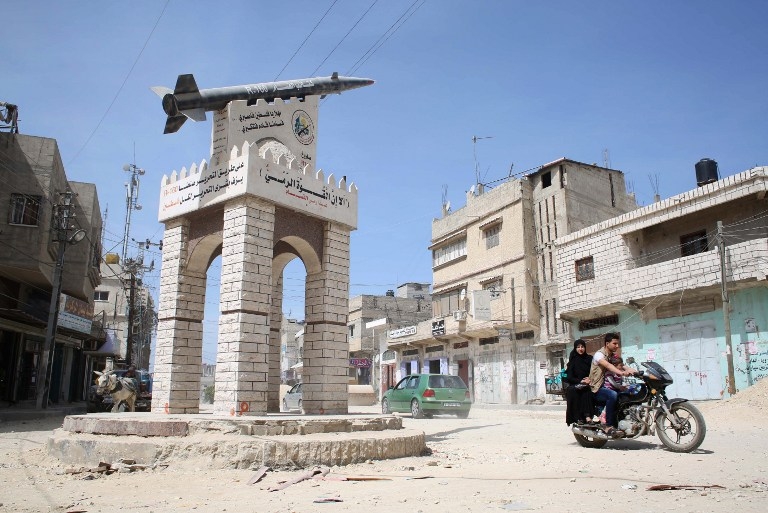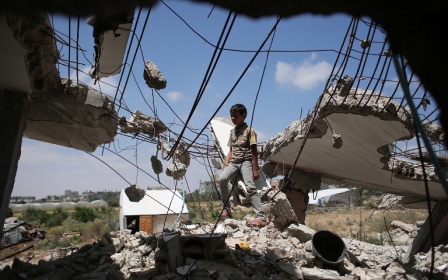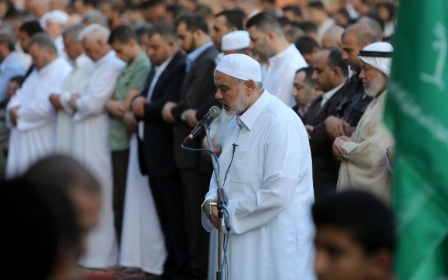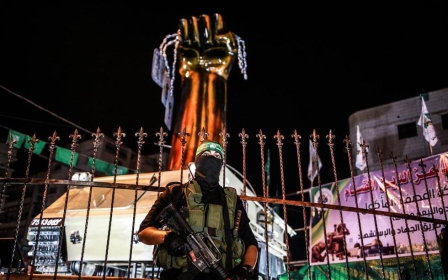Gaza resistance more sophisticated since war, say analysts

In the year since Israel's 'Operation Protective Edge', Gaza-based Palestinian resistance groups have become more sophisticated and organised, according to analysts.
"Despite the losses inflicted by last year’s Israeli offensive and the ongoing blockade of the Gaza Strip [by Israel and Egypt], Gaza-based resistance groups have continued to prepare for the next conflict," Abdel-Sattar Qassem, a professor of political science at Palestine’s Birzeit University, said.
Qassem noted that the Palestinian resistance in general – and the Ezzeddin al-Qassam Brigades in particular – "is effectively working to develop new military tactics and capabilities".
The al-Qassam Brigades is the armed wing of Hamas, which took over the strip in mid-2007 after sweeping legislative elections one year earlier.
Earlier this month, Hamas unveiled two new locally-manufactured rockets, which it vowed would be deployed in any future confrontation with Israel.
"These rockets’ effectiveness will become apparent in the future," al-Qassam spokesman Abu Obaida said at a military parade in Gaza City held to mark the one year anniversary of the war.
Since al-Qassam first began manufacturing rockets in 2001, he added, "We have gradually expanded their range, which now stands at more than 80 kilometres."
A major Israeli offensive against the Gaza Strip in late 2012, during which scores of Palestinians, mostly civilians, were killed, saw Hamas introduce its M75-class rocket.
And during last year’s "Protective Edge" offensive, the resistance group introduced its R160-class rocket (with which it managed to strike the Israeli city of Haifa) and its J80-class rocket (which reached as far as Tel Aviv).
According to the Israeli army, al-Qassam continues to conduct missile tests along the Mediterranean coast on an almost daily basis.
Notably, in the first weeks of last year’s conflict, al-Qassam also announced that its engineers had built three different kinds of unmanned aerial drones capable of carrying out missions inside Israeli territory.
According to Antoine Shalhat, an Israeli-Arab expert on Israeli affairs, Israel is deeply concerned about the groups' ongoing development of their military capabilities.
Hamas develops rocket 'range and accuracy'
"The Palestinian resistance has proven its ability to hurt Israel – militarily, politically and economically," Shalhat told Anadolu Agency.
"The range and accuracy of the rockets being developed by Hamas, along with the efficacy of the group’s cross-border tunnels [used to strike targets inside Israeli territory], have all seen considerable qualitative progress," he said.
Recent comments by Israeli military officials, meanwhile, appear to bear out these assertions.
Colonel Nuhi Mendel, deputy commander of Israel’s Gaza Unit, was recently quoted as saying that Hamas had begun reconstituting its military infrastructure as soon as last year’s conflicted had ended.
"Until now, Hamas has continued to dig [cross-border] tunnels," Mendel said in a recent interview with Israeli Public Radio. "Since the end of the operation [last year], Hamas has been restoring its infrastructure and rebuilding what was damaged."
Al-Qassam, for its part, recently announced that, since last year, it had set up military sites adjacent to the Gaza Strip’s border with Israel.
"The performance of the Palestinian resistance in the last war wasn’t expected; it was a miscalculation by the Israeli military," Walid Almodallal, head of the Gaza City-based Center for Political and Development Studies, said.
"The resistance is well aware that the next battle with Israel must be totally different in terms of the weapons deployed."
New MEE newsletter: Jerusalem Dispatch
Sign up to get the latest insights and analysis on Israel-Palestine, alongside Turkey Unpacked and other MEE newsletters
Middle East Eye delivers independent and unrivalled coverage and analysis of the Middle East, North Africa and beyond. To learn more about republishing this content and the associated fees, please fill out this form. More about MEE can be found here.




